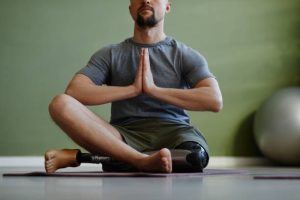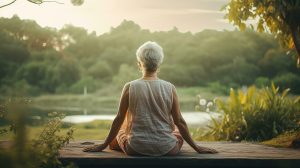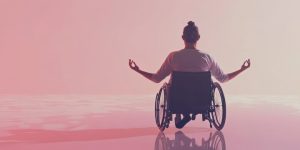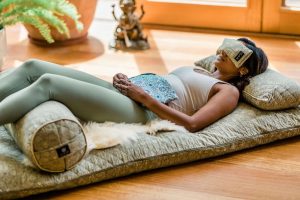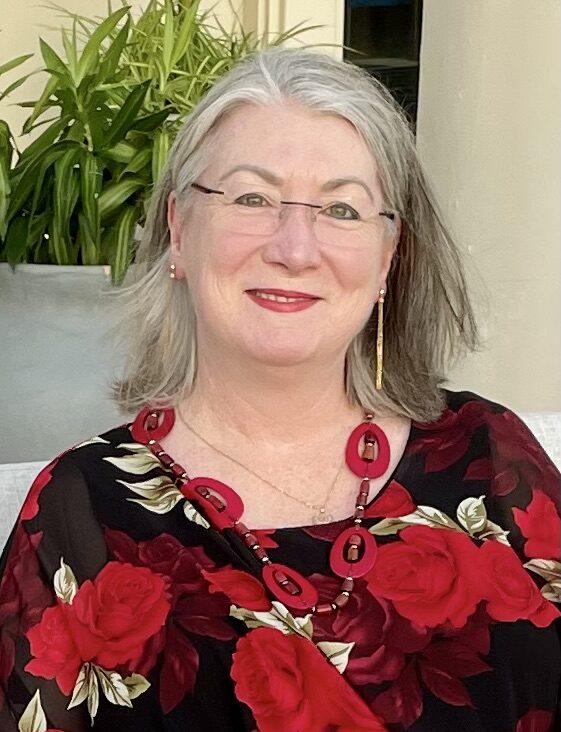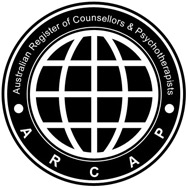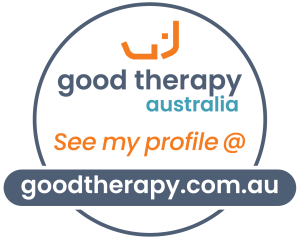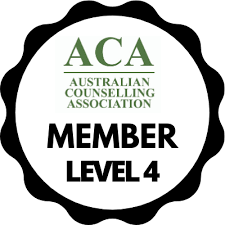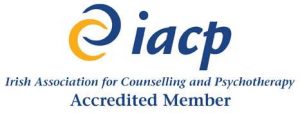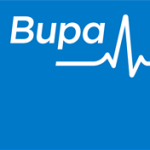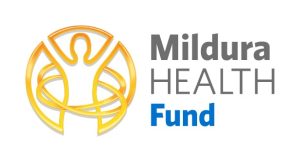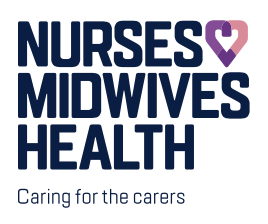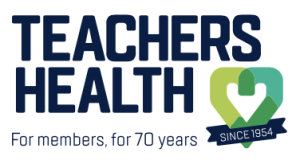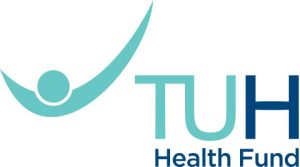What Is Trauma Informed Yoga Therapy (TIY)?
Trauma Informed Yoga therapy is a specialised form of yoga practice specifically designed for individuals who have experienced trauma in their life journey – although everyone can benefit from participating in this form of yoga. The focus is on creating a safe and supportive environment where you can reconnect with your body and learn to manage symptoms. Trauma Informed Yoga practice encompasses emphasising choice, gentle stretching movements, and gaining greater awareness of your physical sensations, all while prioritising your comfort and sense of agency within the practice.
The use of gentle yoga forms, subtle focus on the breath and using specific emotional regulation techniques are scientifically shown through research to have both energising and calming effects on the nervous system, which calms the ‘emotional centre’ of the brain or amygdala (the reaction based safety/survival part of your brain). During Trauma Informed Yoga sessions your parasympathetic nervous system (the bodies soothing/calming system) is activated to help reduce the fight, flight, freeze response. This allows you to more readily make choices based on what is right for you using your ‘front brain’ (prefrontal cortex) which supports problem solving, decision making, logical thought, etc.
Practicing to make choices on what is best for you on the yoga mat, also helps you to make choices on what is best for you off the yoga mat. From research we know that yoga helps you to access a ‘pause’ without slipping into survival/emergency mode and reacting in the moment, which is key to improved emotional regulation. You are then more readily able to make a choice to utilise the additional learned emotional regulation skills taught within the sessions, to further support maintaining a sense of calm. You will then feel more capable to decide your next best steps to move forward positively, feeling empowered within yourself.
Some Of The Researched Benefits Of Trauma Informed Yoga Include:
- Being more present in the moment
- Make choices that are right for you
- Learning to effectively act on your choices
- Greater awareness of your breath
- Effectively manage stress
- Increased emotional resilience
- Heightened ability for self-compassion
- Feeling of safety and strength in yourself
- Improved quality of sleep
- Decreased intrusive thoughts and hypervigilance
- Greater self-esteem and confidence
- Increased positive self-talk
- Learning to notice more readily what you feel within your body
- Ability to be more expressive in talking therapy sessions
- Development of positive coping methods
- Increased use of self-care strategies
- Establish boundaries and be assertive
- Decreased feelings of depression and anxiety
- Gain increased trust in yourself and others
- Sense of empowerment within
- Develop a positive relationship with your body
I offer a range of courses consisting of 9 sessions each to choose from, which are suitable for people with all levels of current fitness, health or physical limitations. Whether you have no previous yoga experience or have been practising various yoga styles for many years – you will still benefit from these courses.
Through ongoing sessions, the simple aim is to learn to notice how you feel in any given moment, develop greater confidence in choice making, and then take effective action based on your choices, to increase your sense of personal safety and feel empowered within – knowing you are listening to what is right for you.
It is important to note that it can be common when participating in Trauma Informed Yoga practice to experience emotions which can be unanticipated, as energy flows more freely within your body. If this occurs for you, you may wish to remain still in any yoga form comfortable for you and take slow deep breaths until the feeling passes, or even take a break if needed. I will offer support during that time, should it occur.
It is essential that you feel you are in a safe space, with no requirement for you to share any personal information about yourself. I will not talk about your trauma, nor expect you to do so, as it is not a ‘talking therapy’ session. The yoga style offered is not religiously based or affiliated with a specific traditional yoga teacher. The yoga is a combination of Yin, Restorative and Nidra styles, taught using Trauma Informed principles.
 What Can I Expect In Sessions?
What Can I Expect In Sessions?
Prior to the course commencing we undertake a standard first therapy assessment session so that I can gain some understanding of your health and trauma history. This is to ensure that we can plan for me to best support you, should you experience any ‘triggers’ or difficulties during any session. Read more about what to expect in your first session. We will also discuss and plan what Trauma Informed Yoga course will be best suited for you to commence based on your greatest needs, including any physical limitations you may have.
No special yoga clothing is required – You may wear any clothing that you feel comfortable in, and allows you to move freely without discomfort. Sessions may be done seated in a chair the whole time, or using a yoga mat with seated, standing and lying positions. The sessions are aimed to start and complete on time.
No special yoga equipment is required – You may utilise common items within your home environment to save costs (which I will advise of prior to course commencement during our initial therapy assessment session), or you may wish to purchase specific yoga items if you prefer.
At the beginning of each session, you can expect various specific emotional regulation skills to be demonstrated and practiced. These skills can then be utilised in your daily life in times of overwhelm from experiencing trauma triggers, or increased stress, to enhance a heightened sense of self control during intense and difficult emotions.
Each session includes completion of a mindful ‘body scan’ whilst in a comfortable deep relaxation yoga form to encourage body and mind relaxation and ‘grounding’, to integrate your yoga practice and prepare you to leave the session going back into your daily life with a sense of calm and inner stillness. This time includes learning another emotional calming yoga skill with the suggestion of choosing a positive ‘intention’ (or affirmation) that has meaning or importance for you, on how you wish to feel prior to leaving the session – For example, “I am safe and I am free to be myself”.
Because this is both a psychoeducational and yoga experiential course, I offer handouts via email. This makes it easier for you to practice the emotional regulation skills learnt within each session, as well as follow any specific yoga ‘sequencing’ sheet utilised in the session, so you can use visual cues to continue your practice of the yoga forms at home.
Practicing regular Trauma Informed Yoga has been proven to promote connection between our mind and body, which can help in reducing trauma symptoms and support greater emotional regulation in your day to day life, with an enhanced sense of calmness. I endeavour to support you to explore what healthy boundaries and assertiveness looks like through movement and reconnection to your body, within a safe environment. Thus you are encouraged to practice what you learn during classes throughout the week if desired, to further enhance the benefits gained in your sessions with Somatic Psychotherapies.
Level 1 Course 
You are invited to take part in an initial Level 1 Trauma Informed Yoga course that is gently paced. Even if you have experience with other general yoga styles or have attended other trauma informed yoga previously, you will find benefit in starting with the Level 1 course. This is due to the foundational skills incorporated within Somatic Psychotherapies courses that will support your transitioning to the Level 2 course, should you decide to continue on your Trauma Informed Yoga journey.
Initially, various gentle stretching movements are performed which are specifically sequenced to warm your muscles and joints to prepare and relax the body. A different specific breath work emotional regulation skill is taught each session, before starting a selection of slowly paced yoga forms which are offered specifically sequenced, to comfortably create rhythm through movement and connection with breath. You are continually invited to be present in your body to notice what sensations you may feel, and only move in ways that feel comfortable to you, without causing pain or discomfort. Thus, learning to make effective decisions by listening to your body alone, deciding what is right for you in that moment.
For each yoga movement suggested and demonstrated, variations for that movement are also offered, so that you may make a choice on which option is right for you in that moment – Knowing that in each session you may feel differently in your energy, flexibility, confidence, etc. At any time within the session you may choose to remain still or, choose an entirely different movement instead. There is no right or wrong option – only what is right for you in that moment, as every component of the sessions are optional.
Because it is not a ‘traditional’ yoga style, there is no emphasis on ‘the perfect pose’ or ‘getting it right’. We move slowly from one yoga form to another, giving time for ‘resting’. Any yoga forms offered will be verbally guided and visually shown – As suggestions only. I will not ‘instruct’ you to make any physical ‘adjustments’ to your chosen yoga form, nor offer any verbal ‘corrections’. I merely accept that whatever form you are in, is because you have chosen this as being right for you at that time and I respect your right to do so – knowing there is no ‘wrong’ way in Trauma Informed Yoga practice.
The session ends with a mindful relaxation phase whilst in a restorative yoga form and encompasses being taught different yoga mudra’s each session (meaningful hand shapes), positive affirmation and gratitude practice to conclude the session to feel physically calm and emotionally uplifted.
Level 2 Course 
The Level 2 course is similarly facilitated from Level 1, in that each session is started with learning a specific emotional regulation skill. A yoga sequence is then practiced, which ends in a mindful relaxation phase encompassing being taught different yoga mudra’s each session, positive affirmation and gratitude practice to complete the session feeling physically calm and emotionally uplifted.
The difference being for Level 2 is that the emotional regulation skills become more advanced and the degree of intensity of yoga forms gently increase in difficulty, as your strength and flexibility increases from the Level 1 course. The advanced emotional regulation skills are from various therapy modalities including Brainspotting, EFT Tapping, DBT, Mindful Meditation, Havening and HeartMath techniques.
Because you are invited to always listen to your own body and choose whatever option of yoga form feels right in the moment, and thus only challenging yourself when you feel ready to do so, the Level 2 class is also suitable for participants of all levels of physical ability, age, or health issues.
Level 1 & 2 Chair Based Courses 
Participants who have physical limitations due to past injury or recovering from surgeries, have difficulties with moving their body, balance or mobility issues, may benefit from attending my specific chair based sessions. These sessions are designed to support gently increasing physical strength and flexibility in a safe way, where all movements are done whilst seated in a chair during the entire session.
The courses are the same format as the standard Level 1 & 2 courses and incorporate the same emotional regulations skills. The difference is the use of different yoga movement sequences that are specifically adapted to suit being seated. You are welcome to graduate to the general yoga mat based Level 1 and 2 courses if desired.
Yoga Nidra Course
Yoga Nidra literally means yogic sleep. It is an ancient technique where the participant enters a deep state of ‘conscious’ relaxation. It is a systematic practice of moving awareness from our ‘external’ world to our ‘inner’ world. It brings us to a state of ‘deep sleep’ whilst actually being awake – where our senses, intellect, and mind relax simultaneously. Although you may feel very relaxed in body and mind, you will also feel quite awake and aware of yourself at the same time, which maintains a felt sense of ‘safety’. This practice is particularly beneficial for people who have experienced trauma and live in a constant state of feeling unsafe and mental ‘busyness’, to learn to comfortably experience feeling safe and stillness within.
It is essentially a very gentle style of deep relaxation form of yoga where you lie still and comfortably on a yoga mat, lounge or bed, covered with a blanket to maintain a felt sense of warmth for the session, whilst you are guided through specific meditation practices. You may have your eyes gently open or closed – whichever you prefer, as there is no right or wrong way to practice Yoga Nidra.
Each session is focused on delivering one of the three known styles of Yoga Nidra so you can experience a variety of methods. Once you determine which style you personally prefer, you may wish to continue practicing Yoga Nidra in the future to continue receiving the benefits in your daily life.
The Yoga Nidra course is similarly facilitated from Level 1 & 2 Trauma Informed Yoga, in that each session is started with some simple yoga stretches to warm your muscles and joints to prepare and relax the body, a specific breath work emotional regulation skill is taught (different to Level 1 course), then the Yoga Nidra is practiced. It ends with a mindful relaxation phase encompassing being taught yoga mudra’s each session (different to Level 1 & 2 courses), positive affirmation and gratitude practice to complete the session feeling physically calm and emotionally uplifted. The major difference being from Level 1 & 2 Trauma Informed Yoga courses is that there is no yoga ‘exercise sequence’ component, as the majority of the class is lying in a comfortable position. Thus, it is not a movement based course, but purely a relaxation focused one.
Yoga Nidra is not hypnosis. You are aware on a conscious level at all times, and in fact are encouraged to not fall asleep by specific prompts during the practice, so you can maintain consciousness whilst also feeling deeply relaxed and tranquil. Yoga Nidra works by allowing you to alter the ‘delta, theta and alpha’ brainwaves, which are responsible for the healing and restoration that normally happens in your body while your mind and body rest during sleep – but instead it occurs while you’re actually awake, so that mental and physical healing can occur.
It is this relaxed mental space between being asleep and awake (or ‘sleepless sleep’) that our body can achieve complete muscle softening, clearing of the mind to let go of the stress and tension we carry from past experienced trauma. Research shows that Yoga Nidra also supports reducing the reactivity of the flight, fight, freeze response area of the brain, which becomes over active in people who have experienced trauma and suffer from Post Traumatic Stress Disorders.
Some Benefits Of Yoga Nidra Are:
- Rejuvenates the body
- Improves concentration
- Reduces Stress
- Improves the nervous system of the body which is responsible for healing
- Improves memory
- Better sleep quality and reduces insomnia
- Reduces symptoms of anxiety and depression
- Improved sense of calm and clarity
- Increase in mood, sense of quality of life and wellbeing
- Reduces chronic pain
- Increased energy levels
Performing Trauma Informed Yoga can bring incredible relief both mentally and physically to feel calm, centred within and more relaxed. Contact me now to enquire, or make your first session booking via the Client Booking Portal to undertake the initial assessment process and get you started on your TIY journey with Somatic Psychotherapies. I absolutely love doing Trauma Informed Yoga and look forward to sharing this powerful therapy with you too!

“Be mindful. Be grateful. Be positive. Be true. Be kind.”
– ROY T. BENNETT
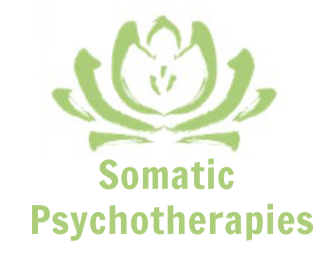

 What Can I Expect In Sessions?
What Can I Expect In Sessions?